Tactical role-playing games/TRPG (also known as strategy role-playing games) are a video game genre that combines core elements of role-playing video games with those of tactical (turn-based or real-time) strategy video games. The formats of tactical RPGs are much like traditional tabletop role-playing games and strategy games in appearance, pacing, and rule structure.
Players who are into the slow deliberate strategy elements would definitely love this particular genre. In this article, Gurugamer is going to showcase the top 5 best tactical RPGs to play on PC in 2022.
1. Divinity: Original Sin 2
DOS 2 is a single-player and cooperative multiplayer fantasy role-playing video game by Larian Studios. It is one of the best cRPG out there, if you are a fan of roleplaying games, this is definitely a must-buy.

One of the best things about DOS 2 is its gameplay. It's turn-based, slow-paced but really interactive with many different elemental combinations, and cool interactions between each ability and your surrounding environment. For example, you can create some nasty chain explosive reactions with a combo of Fire and Poison, any kind of liquid (water/blood/poison/...) left on the battleground can react to Air turning it into a pool of Electricity dealing damage and stun anyone in it.
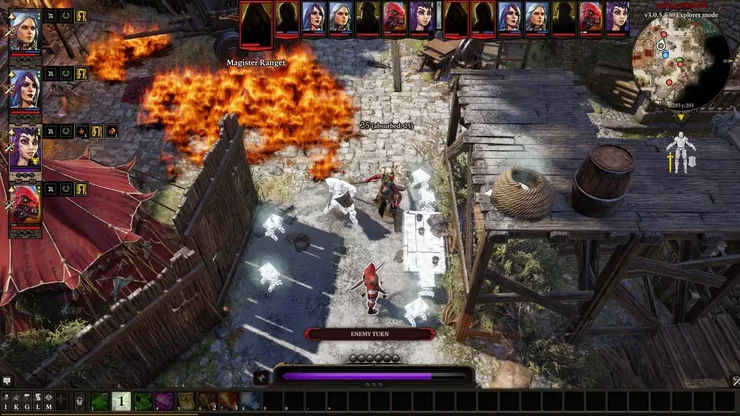
Buffs/debuffs status usually do more than one thing and may interact with each other, Stone Armor not only increases your physical armor but also stop you from bleeding/burning because you are solid rock. Peace Of Mind is the kind of ability that let you see bigger pictures, it provides stats buff and cures Blindness BUT also removes frenzy status Rage, because the target has become wiser so no more bold actions. Rage on the other hand is also another status that increases damage output but at a great cost of defense down.
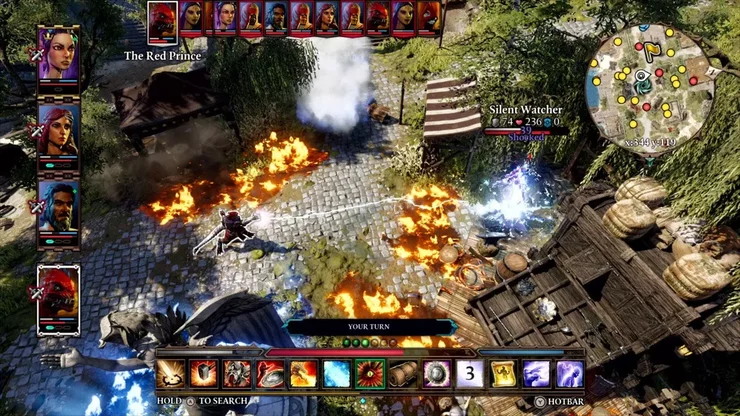
Talents in-game open up your playstyles depending on what you pick. Lone Wolf or One Man Army does what it says for those who want to go solo, Leech turns you into a vampire allowing you to heal when standing near blood or Zombie makes Poison heal you instead but normal healing will damage you. Because the game is classless, you can be anyone, mix and match anything you like, you may be born a warrior but dream to be a mage, go learn some magic and become a battlemage. Who says warriors can't be sneaky, go ahead and get yourself some rogue abilities...
2. Wildermyth
Wildermyth is a beautiful "DnD campaign simulator" composed of three pillars that act as the foundation for the overall experience.
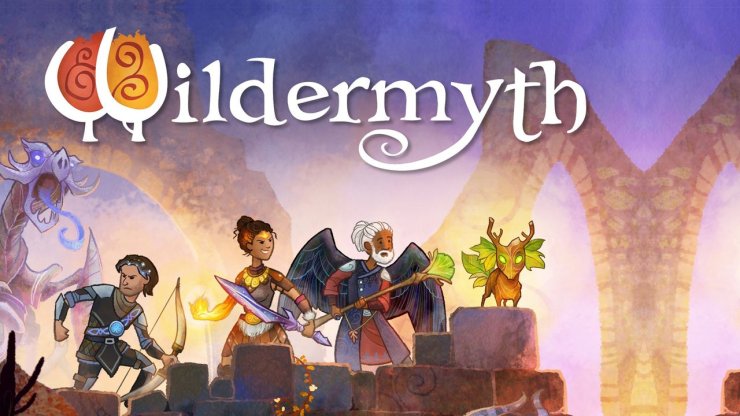
First, you have the randomized-story aspect, the game has several pre-made campaigns with set objectives and an overarching tailor-made narrative, all campaigns are segmented into chapters which, in the same manner, are divided into events (most of them translate into skirmishes). The events and subquests are beautifully written, and most events I've seen involve a range between one or three choices that translate to different outcomes with highly influential effects on your party and overall character development (Expect your heroes to develop both physically and psychologically, gaining abilities, capacities, or even mutating that affect combat). Since no dialogue is voice acted you should expect numerous walls of text, in the few campaigns I've run till now I have yet to find a quest lacking in charm, thus making reading enjoyable.
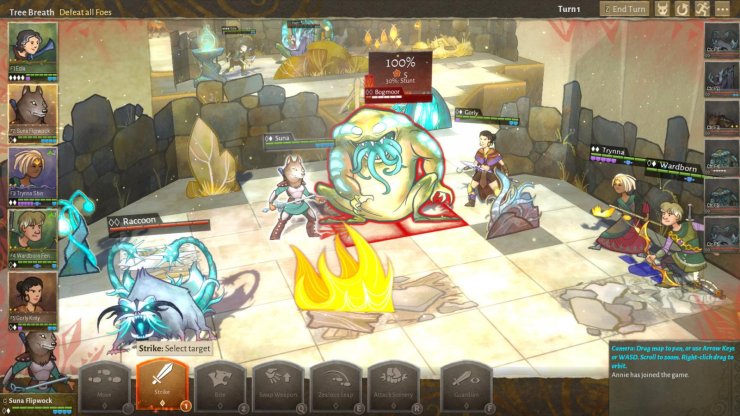
The second mechanical foundation of this game is the tile-based overworld, which involves managing your troops, scouting, securing, and fortifying locations, you'll start campaigns with three heroes, but that does not mean you cannot recruit additional reinforcements. Time is the most precious resource in this aspect of the game, every task has its own cost in time and resources, whether that task is deforesting a region, traveling to a different tile, patrolling, fending off an invasion or even recruiting reinforcements, therefore managing your troops efficiently to make the most of the time is recommended.
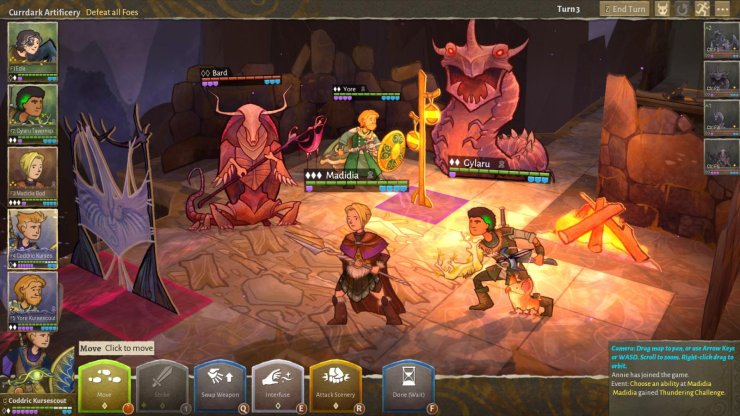
The final pillar of this game is combat, skirmishes occur on a grid-based scenario, most akin to Fire Emblem battles, where squads up to five heroes must route, escape from, or fend waves of different monsters or creatures.
3. Symphony of War: The Nephilim Saga
The Nephilim Saga is a breath of fresh air for those of us who've spent the past three decades wishing and hoping that turn-based tactics games like Ogre Battle and Fire Emblem would make their way to our beloved PC gaming platform.
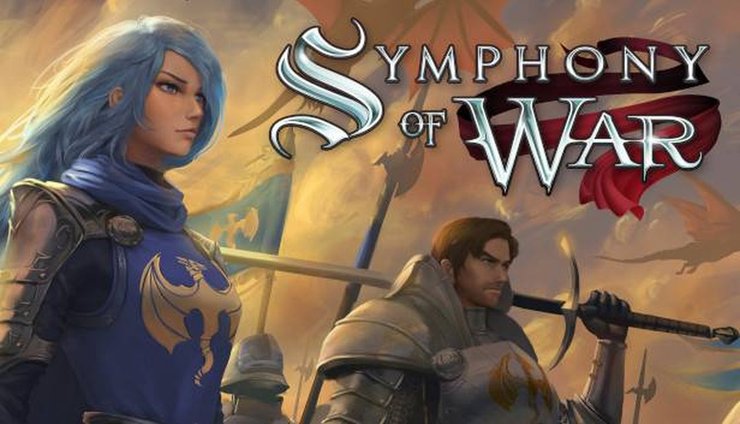
PC has long been a platform dominated by real-time strategy and turn-based strategy, but woefully bereft of quality entries in the turn-based tactics subgenre of strategy games. While consoles and handhelds saw the fantastic Fire Emblem, Ogre Battle, Tactics Ogre, and Final Fantasy Tactics series flourish, we watched from afar. Total War, Starcraft, Command & Conquer are fine games, of course, but there's just something about a good turn-based tactics game that scratches the itch like none other for those of us who love the subgenre.
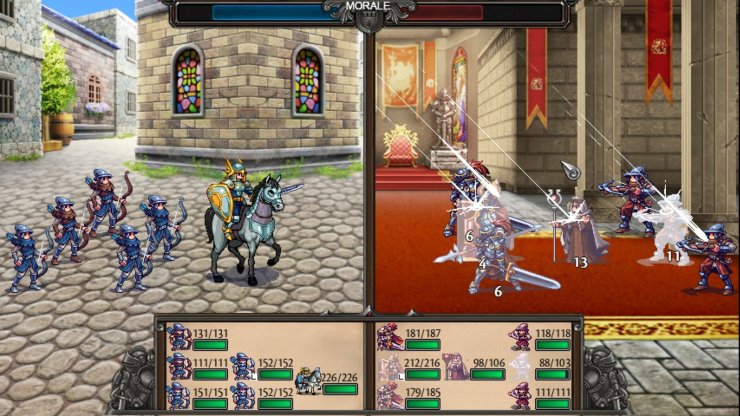
Enter Symphony of War: The Nephilim Saga. This game brilliantly blends Ogre Battle's classic squad-based unit formation with Fire Emblem's general aesthetic and grid map, and it does it wonderfully. There is something superbly satisfying about building your squads and then watching them in action. If you've played a Fire Emblem game before, you will more or less know what to expect here. If you haven't, but you're looking for a solid turn-based tactics game, The Nephilim Saga will be a good place for you to start.
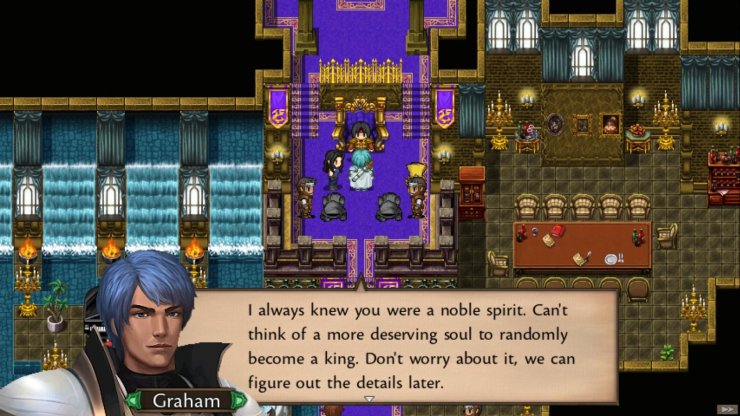
4. Horizon's Gate
Horizon's Gate is an addicting RPG. A lot of people have stated it's a fusion of Uncharted Water + Final Fantasy Tactics. That's all well and true but this game also reminds me greatly of Baldur's Gate 1 in the sense of freedom and exploration given. It is a game that makes me want to keep going over the horizon just to see what's next.
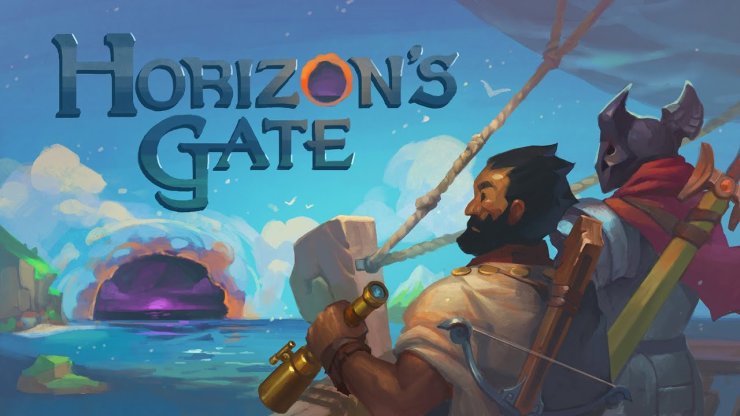
Combat and class building remain strong elements of any Rad Codex game. Combat is turn based on a tactical grid map with a turn timeline that can be manipulated. An enhancement over past games is the ability to set up the starting formation of your party, eliminating a past problem of starting combat in a straight line.
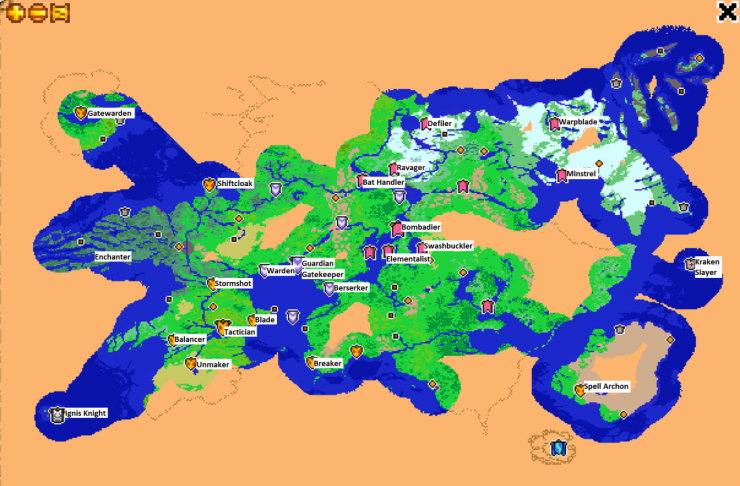
Character customization comes in the form of a class/job system where characters can change roles outside of battle and level up specific classes. Characters can have two classes active at once, a primary class where they gain experience and a secondary class that does not gain experience but allows those class abilities for use in battle. The classes are unique and specialized so that they do not greatly overlap and all have their own play style (with the exception of some magic user classes which are just different flavors of AOEs). Classes have their distinct weaknesses, particularly focused stat growth and ability-set. Multi-classing enables players to overcome class weaknesses by pairing different class abilities to make up for said weaknesses, making players earn their OP builds.
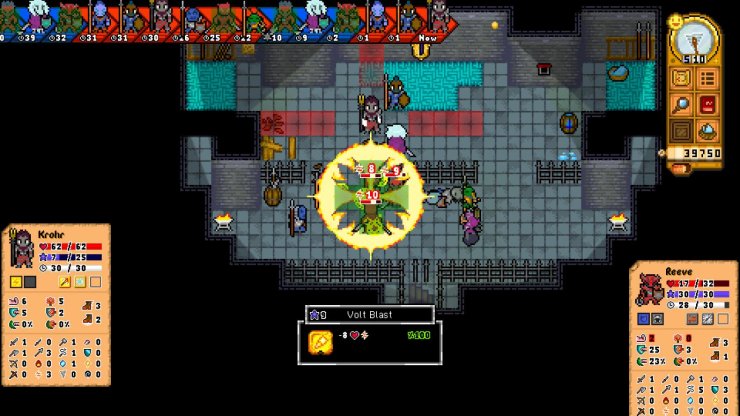
5. Defender's Quest: Valley of the Forgotten
Imagine the game where your typical RPG party becomes towers in the typical Tower Defense game and you have Defender's Quest in a nutshell. The game consists mostly of mowing down a conga line of various enemies that constantly move towards your main character as an end goal. Place your Knights, Berserkers, Druids and Ice Mages like buildings beside the highway and enjoy the fireworks, swords and arrows flowing. Recruit more units and upgrade them while spending experience points or buying them better equipment.
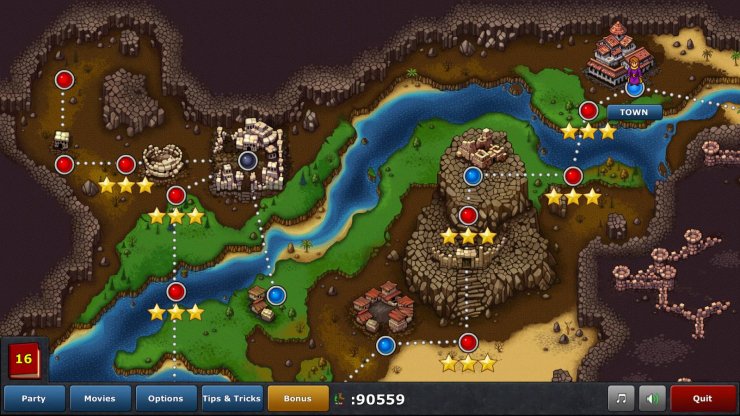
While looking at the bare game, RPG and Tower Defense mechanics aren't that much complicated. There aren't that many character classes, statistics and different weapon types like in a classic RPG game and Tower Defense parts aren't that complex either. It's quite a simple game in reality, but this doesn't deter me from stating the fact that the game can be very enjoyable when you get the right flow for it, which is quite important and enforced by one of the weirdest difficulty curves I have ever seen in gaming period.
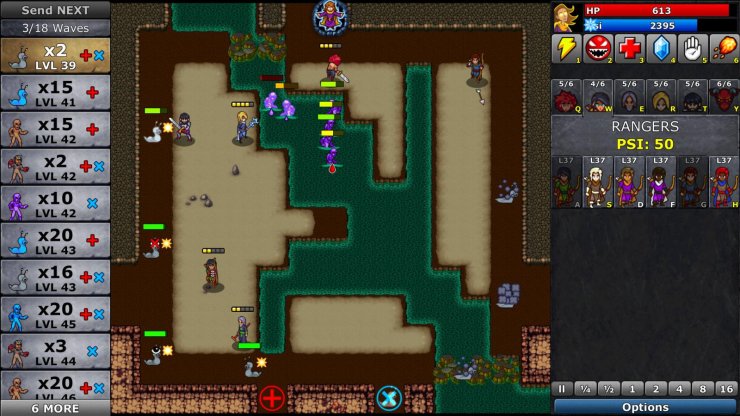
While attending the battle, you have a choice between several difficulty levels. You level up and get cash after the fight, but even playing on Normal, you will find yourself struggling with keeping up with the enemies. Eventually, you will hit that unmovable roadblock which might be very frustrating if you don't know what to do. And what you should do? Every time you hit that unreachable challenge, go back to the previous missions and play them on higher difficulties. You will find your team extremely overpowered while gaining wind in the sails back again. At this point the game starts becoming a task of choosing the right battles, backtracking and creative grind, while still getting meaningful progress with it by obtaining unique equipment, experience and skill points.
You will be constantly switching back and forth between story progress and grinding to stack up. Your team will meander between being very powerful and unable to advance in this endless circle until the end credits, and truth be told, this somehow ends up as a satisfying experience. Because of those constantly shifting roadblocks, you will oftentimes witness your party taking on previously unimaginable tasks and it is very cathartic to experience those situations. Mowing down tons and tons of zombies that previously were relentlessly biting your back? Those moments drive straight home.
>>> Read more: Top 5 Best Deck Building Games To Play On PC (2022)
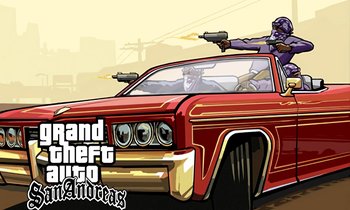
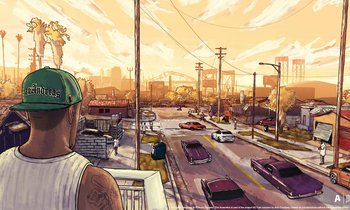

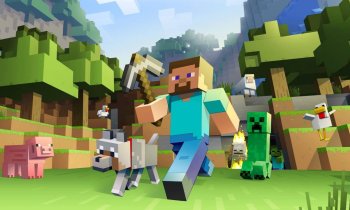
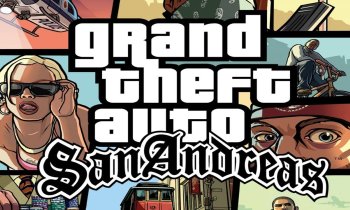





Comments